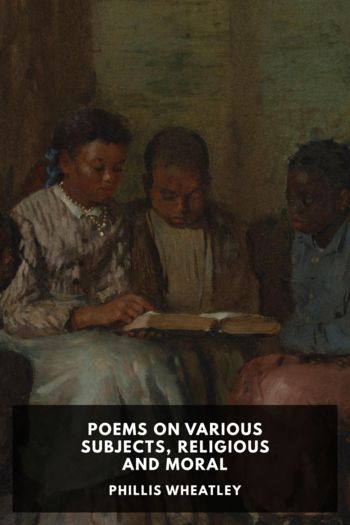My Reminiscences by Rabindranath Tagore (free children's ebooks pdf .TXT) 📕

- Author: Rabindranath Tagore
Book online «My Reminiscences by Rabindranath Tagore (free children's ebooks pdf .TXT) 📕». Author Rabindranath Tagore
But though the attempt to gather precise history from memory’s storehouse may be fruitless, there is a fascination in looking over the pictures, a fascination which cast its spell on me.
The road over which we journey, the wayside shelter in which we pause, are not pictures while yet we travel—they are too necessary, too obvious. When, however, before turning into the evening resthouse, we look back upon the cities, fields, rivers and hills which we have been through in Life’s morning, then, in the light of the passing day, are they pictures indeed. Thus, when my opportunity came, did I look back, and was engrossed.
Was this interest aroused within me solely by a natural affection for my own past? Some personal feeling, of course, there must have been, but the pictures had also an independent artistic value of their own. There is no event in my reminiscences worthy of being preserved for all time. But the quality of the subject is not the only justification for a record. What one has truly felt, if only it can be made sensible to others, is always of importance to one’s fellow men. If pictures which have taken shape in memory can be brought out in words, they are worth a place in literature.
It is as literary material that I offer my memory pictures. To take them as an attempt at autobiography would be a mistake. In such a view these reminiscences would appear useless as well as incomplete.
II Teaching BeginsWe three boys were being brought up together. Both my companions were two years older than I. When they were placed under their tutor, my teaching also began, but of what I learnt nothing remains in my memory.
What constantly recurs to me is “The rain patters, the leaf quivers.”1 I am just come to anchor after crossing the stormy region of the kara, khala2 series; and I am reading “The rain patters, the leaf quivers,” for me the first poem of the Arch Poet. Whenever the joy of that day comes back to me, even now, I realise why rhyme is so needful in poetry. Because of it the words come to an end, and yet end not; the utterance is over, but not its ring; and the ear and the mind can go on and on with their game of tossing the rhyme to each other. Thus did the rain patter and the leaves quiver again and again, the livelong day in my consciousness.
Another episode of this period of my early boyhood is held fast in my mind.
We had an old cashier, Kailash by name, who was like one of the family. He was a great wit, and would be constantly cracking jokes with everybody, old and young; recently married sons-in-law, newcomers into the family circle, being his special butts. There was room for the suspicion that his humour had not deserted him even after death. Once my elders were engaged in an attempt to start a postal service with the other world by means of a planchette. At one of the sittings the pencil scrawled out the name of Kailash. He was asked as to the sort of life one led where he was. Not a bit of it, was the reply. “Why should you get so cheap what I had to die to learn?”
This Kailash used to rattle off for my special delectation a doggerel ballad of his own composition. The hero was myself and there was a glowing anticipation of the arrival of a heroine. And as I listened my interest would wax intense at the picture of this world-charming bride illuminating the lap of the future in which she sat enthroned. The list of the jewellery with which she was bedecked from head to foot, and the unheard of splendour of the preparations for the bridal, might have turned older and wiser heads; but what moved the boy, and set wonderful joy pictures flitting before his vision, was the rapid jingle of the frequent rhymes and the swing of the rhythm.
These two literary delights still linger in my memory—and there is the other, the infants’ classic: “The rain falls pit-a-pat, the tide comes up the river.”
The next thing I remember is the beginning of my school-life. One day I saw my elder brother, and my sister’s son Satya, also a little older than myself, starting off to school, leaving me behind, accounted unfit. I had never before ridden in a carriage nor even been out of the house. So when Satya came back, full of unduly glowing accounts of his adventures on the way, I felt I simply could not stay at home. Our tutor tried to dispel my illusion with sound advice and a resounding slap: “You’re crying to go to school now, you’ll have to cry a lot more to be let off later on.” I have no recollection of the name, features or disposition of this tutor of ours, but the impression of his weighty advice and weightier hand has not yet faded. Never in my life have I heard a truer prophecy.
My crying drove me prematurely into the Oriental Seminary. What I learnt there I have no idea, but one of its methods of punishment I still bear in mind. The boy who was unable to repeat his lessons was made to stand on a bench with arms extended, and on his upturned palms were piled a number of slates. It is for psychologists to debate how far this method is likely to conduce to a better grasp of things. I





Comments (0)